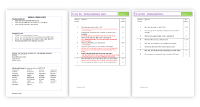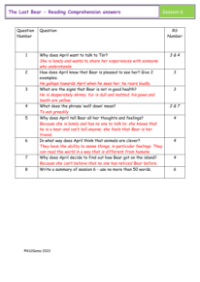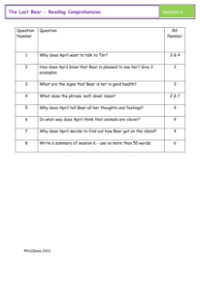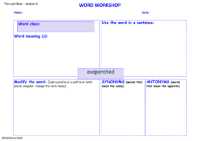The Last Bear - Session 6 - Worksheet
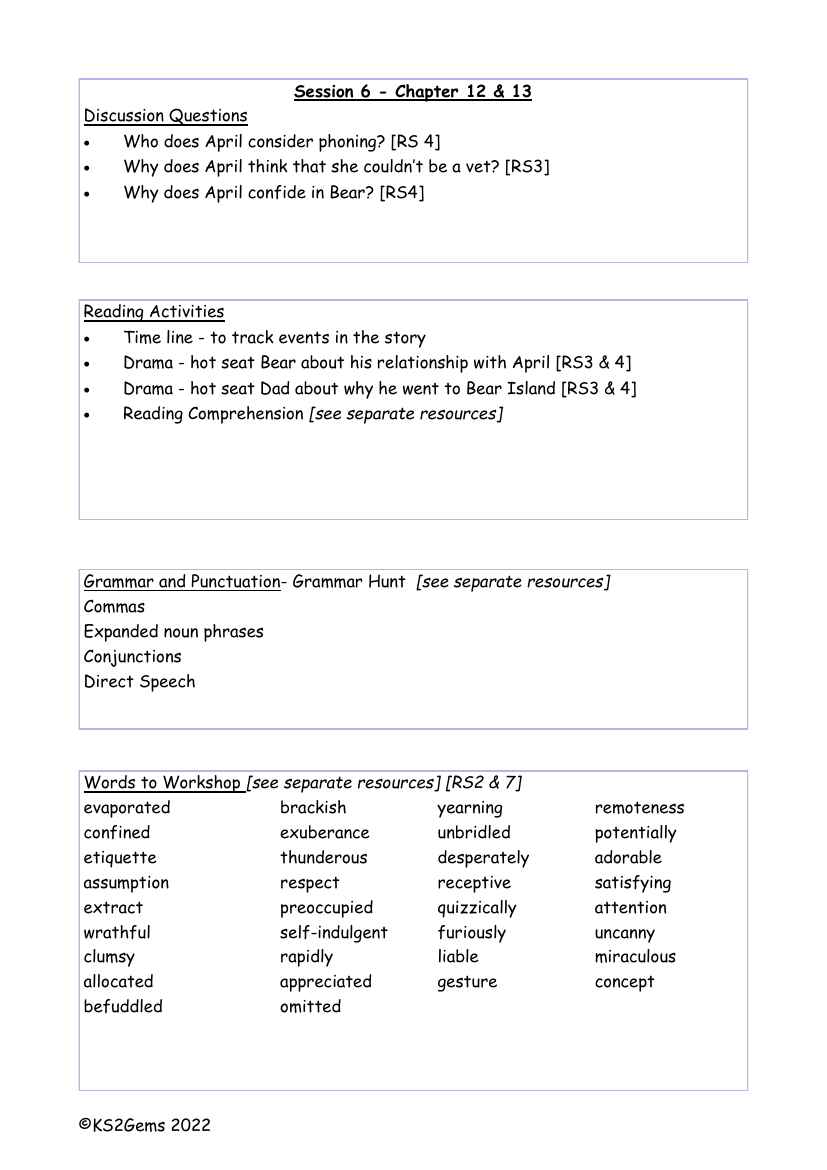
English Resource Description
In Session 6 of "The Last Bear" worksheet, students delve into Chapters 12 and 13 with a variety of discussion questions that encourage them to consider the protagonist April's thoughts and feelings. Questions prompt students to think about who April might reach out to for help and why she doubts her ability to become a vet, as well as exploring her reasons for trusting Bear with her confidences. These discussion points aim to engage students in critical thinking and emotional understanding, aligning with specific Reading Standards (RS) for comprehension and inference.
The session also includes a range of reading activities such as creating a timeline to follow the story's events and participating in drama exercises where students 'hot seat' characters to explore their motivations and relationships. Grammar and punctuation are addressed through a 'Grammar Hunt' that focuses on elements like commas, expanded noun phrases, conjunctions, and direct speech. Vocabulary development is supported by a 'Words to Workshop' section, which presents a list of words for students to understand and use. Writing opportunities allow for creative expression through diary entries from Bear's perspective, fact files on polar bears, and letters from April to her father, discussing her desire to leave school early and her feelings about her mother.
Cross-curricular links extend the learning experience, connecting the literary content with subjects such as Science, Computing, History, Geography, Art, Design and Technology (DT), Music, Physical Education (PE), Religious Education (RE), and Personal, Social, Health and Economic (PSHE) education. Activities range from creating simulations and presentations about global warming to exploring religious perspectives on bereavement. Finally, the session encourages practical environmental action through a litter-picking activity in the school grounds or local area, fostering a sense of responsibility and awareness of environmental issues.
